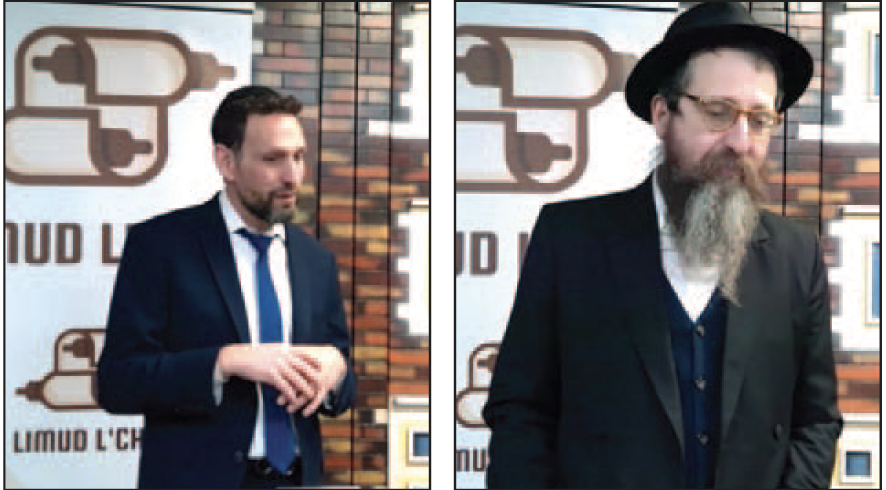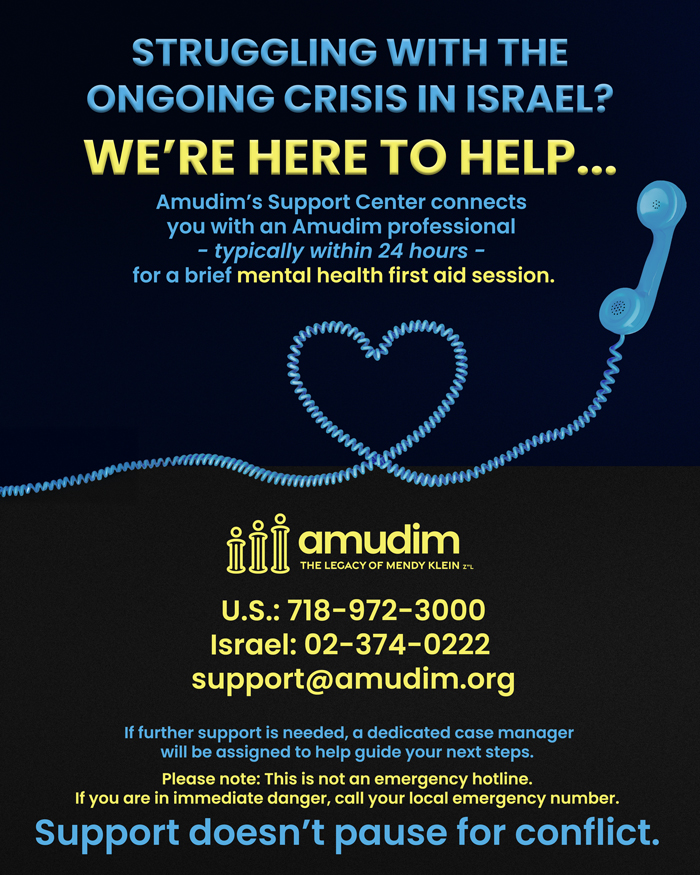
On Wednesday, January 12, there was a community gathering at Chabad of Rego Park to discuss mental health challenges that unfortunately contribute to opioid abuse in our community. Our community, and particularly our youth, are facing a number of mental health challenges that manifest as severe depression, suicides, and drug overdoses. According to the Centers for Disease Control and Prevention, the number of drug overdose deaths has quadrupled since 1999. Over 70 percent of drug-related deaths involve an opioid. According to the National Institute of Mental Health, 13 percent of young adults in the United States have major depression. Suicide is the second leading cause of death among individuals between the ages of 10 and 34. There are close to 5,000 drug overdose deaths among individuals between the ages of 15 and 24, according to the National Institute on Drug Abuse. Roughly one-third of adults who have a substance use disorder also suffer from depression, according to Addiction Center.
These are damning statistics. What can we do about this? Three main messages came out of the meeting, whose participants included representatives of Amudim, an organization dedicated to serving community members in times of crisis. They function as a confidential resource center that provides meaningful assistance, enduring support, and direct referrals for individuals and families impacted by addiction and other crisis-related matters.
First, the message to our beloved brothers and sisters who are facing mental health challenges such as severe depression along with substance abuse, was that we are not defined by our brokenness. There is no need to internalize shame and the feeling that the illness is a sign of personal failure. “This world is a beautiful world and by extension every person in this world is a beautiful person. This is not the end of the line but the beginning of the line,” stated Rabbi Eli Blokh of Chabad, quoting Basi L’Gani. Those facing certain challenges in life that are difficult to cope, may turn to drugs as a solution. It is a way to numb the pain. There is also an element of fear of failing again and hence the reluctancy to seek help. However, there are organizations, such as Amudim, that can help. The road to recovery is not easy, but there are various treatments that are very effective. The key is not to isolate oneself, but to seek the support and compassion of others who can provide proper direction on the road to recovery.
The second message conveyed is that it is important for the rest of us is to connect with those who are struggling and to “stand by them. Believe in them and they will believe in themselves,” said Rabbi Moshe Frankel, MSW, who works for Amudim and has been helping victims of substance abuse for over 20 years. With all the modern technology, including 5G network, while it seems we are the most connected, in reality, we are disconnected. According to recent research by Substance Abuse and Mental Health Services Administration, 39% of American adults feel lonely and not connected to anyone. It is important to convey a message to those who are struggling that “we care” and that they are part of our community. To make them feel that they belong. This way we gain their trust and make them feel more comfortable to step forward and seek help, including treatment.
It is important to recognize signs of depression and engage those who are struggling and not to turn away from them. Sadness is a normal emotional behavior. However, when it becomes debilitating, it becomes a problem. For example, it is normal to have low mood at times and just wanting to go to disengage for a short period. However, when a person cannot seem to shake it off and cannot get out of bed, that can be the signs of depression, especially if one experiences extremely low self-esteem and has feelings of worthlessness. Having suicidal thoughts is an extreme situation and an immediate cause for concern. If you or someone you love has expressed having thoughts of suicide or of “not wanting to be alive,” you can call the National Suicide Prevention Lifeline at 1-800-273-8255.
The third message conveyed was to the parents. In addition to mental health challenges, another factor to substance abuse is parental influence and peer usage. With legalization and decriminalization of certain drugs, drug use is being viewed as less risky. In general, things that feel more safe and socially acceptable, are more likely to be used. As parents, it is important for us to think of what message we are conveying to our children. We should consider if we have become a bit too liberal in our use of drugs in front of our children. For example, the use of marijuana has become a common norm in Jewish communities. Regardless of your view of the use of marijuana by adults, all leading experts agree that the use of such drugs is detrimental to brain and emotional development for adolescents. Parents’ use of drugs sends the message to children that when faced with challenges that are difficult to bear, they can turn to addictions.
To summarize, those struggling with substance abuse must know that this is not the end of the line and that there is help. One can reach out to Amudim at 646-517-0222.



